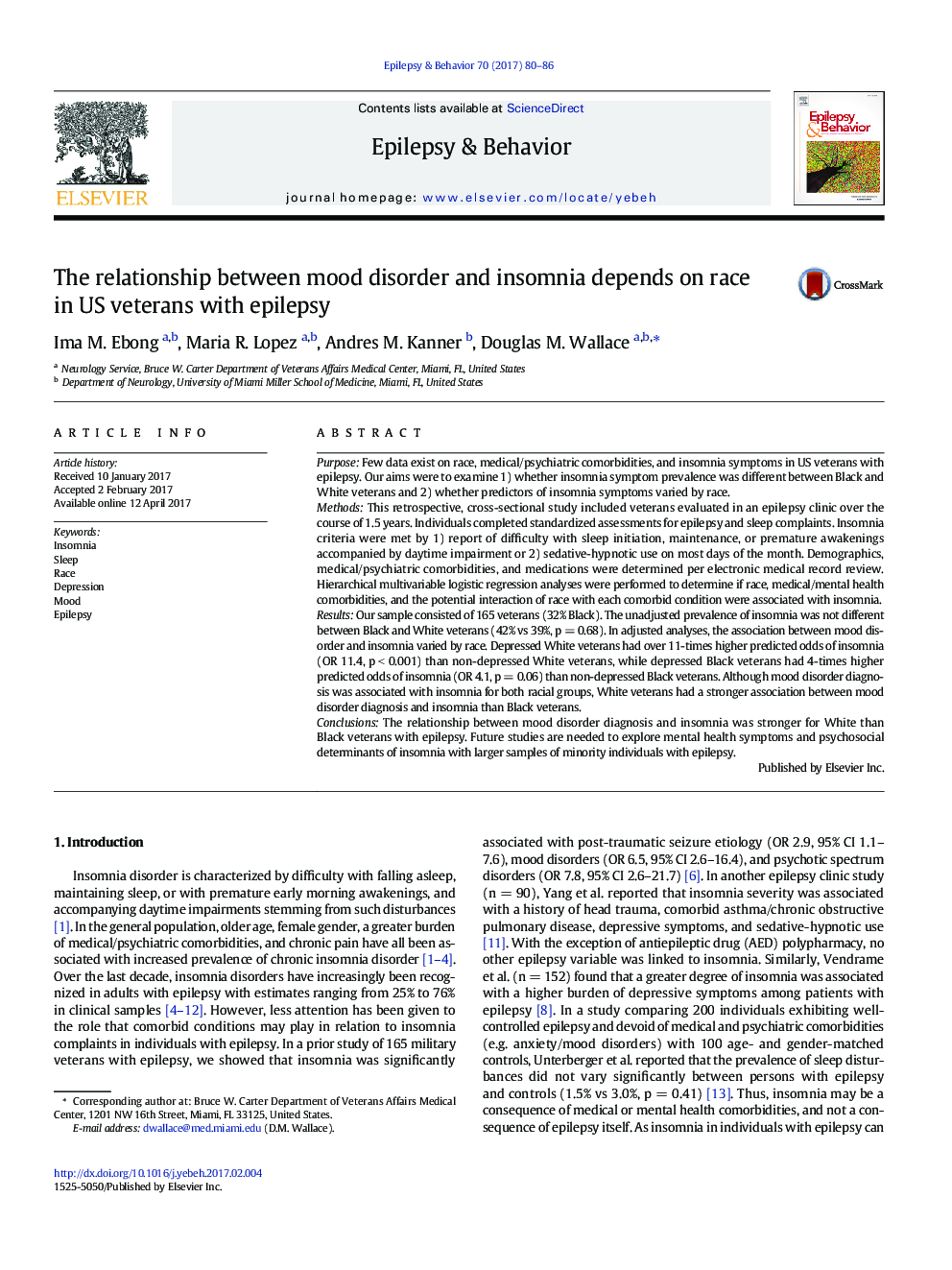| Article ID | Journal | Published Year | Pages | File Type |
|---|---|---|---|---|
| 5628290 | Epilepsy & Behavior | 2017 | 7 Pages |
â¢The role of comorbidities and race in predicting insomnia in epilepsy is unclear.â¢Insomnia prevalence was similar in White and Black veterans with epilepsy.â¢The relationship between mood disorder and insomnia was moderated by race.â¢The association between mood and insomnia was stronger for Whites than Blacks.
PurposeFew data exist on race, medical/psychiatric comorbidities, and insomnia symptoms in US veterans with epilepsy. Our aims were to examine 1) whether insomnia symptom prevalence was different between Black and White veterans and 2) whether predictors of insomnia symptoms varied by race.MethodsThis retrospective, cross-sectional study included veterans evaluated in an epilepsy clinic over the course of 1.5 years. Individuals completed standardized assessments for epilepsy and sleep complaints. Insomnia criteria were met by 1) report of difficulty with sleep initiation, maintenance, or premature awakenings accompanied by daytime impairment or 2) sedative-hypnotic use on most days of the month. Demographics, medical/psychiatric comorbidities, and medications were determined per electronic medical record review. Hierarchical multivariable logistic regression analyses were performed to determine if race, medical/mental health comorbidities, and the potential interaction of race with each comorbid condition were associated with insomnia.ResultsOur sample consisted of 165 veterans (32% Black). The unadjusted prevalence of insomnia was not different between Black and White veterans (42% vs 39%, p = 0.68). In adjusted analyses, the association between mood disorder and insomnia varied by race. Depressed White veterans had over 11-times higher predicted odds of insomnia (OR 11.4, p < 0.001) than non-depressed White veterans, while depressed Black veterans had 4-times higher predicted odds of insomnia (OR 4.1, p = 0.06) than non-depressed Black veterans. Although mood disorder diagnosis was associated with insomnia for both racial groups, White veterans had a stronger association between mood disorder diagnosis and insomnia than Black veterans.ConclusionsThe relationship between mood disorder diagnosis and insomnia was stronger for White than Black veterans with epilepsy. Future studies are needed to explore mental health symptoms and psychosocial determinants of insomnia with larger samples of minority individuals with epilepsy.
